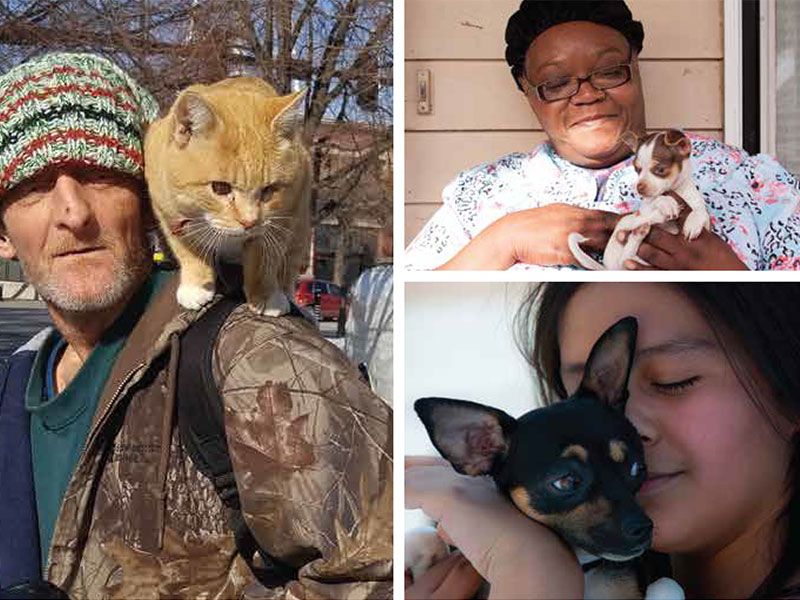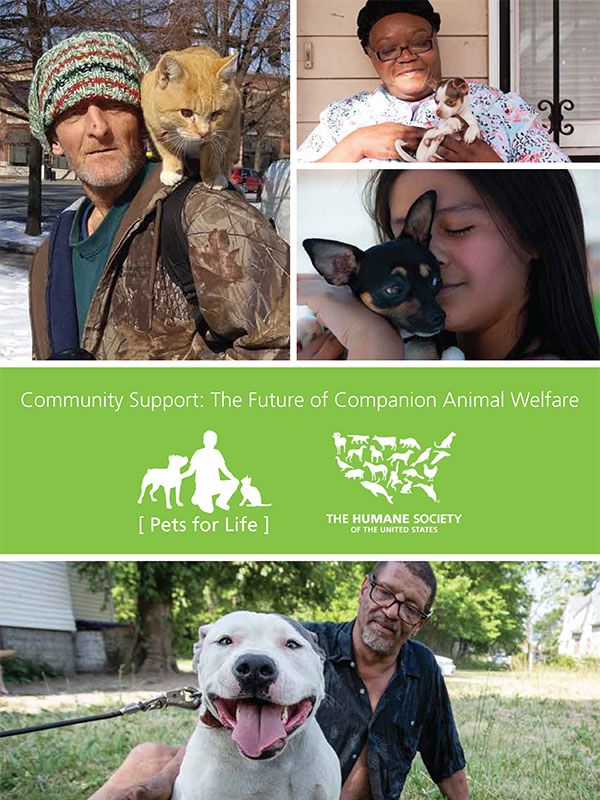Pets for Life research and reports
Pets for Life (PFL) is about more than animal welfare, it is about social justice. Through pet owner support programming, PFL is fighting every day against institutional discrimination and systemic inequity.

Pets for Life promotes the understanding that a lack of financial means does not equate to a lack of love felt for and provided to a pet and works to spread a greater awareness of how systemic and institutional bias impacts millions of people and their pets. Everyone’s lives can be enhanced by a pet, and those who choose to should have the opportunity to experience the unconditional love and meaningful relationship a pet brings regardless of income or geography.
Having worked across the country and collected extensive data, Pets for Life is the leader in how to develop, implement and sustain community outreach and pet owner support programs. By using the lessons Pets for Life has learned along the way, you too can serve your community comprehensively and achieve transformational change in your community.
The PFL data report
Community Support: The Future of Companion Animal Welfare incorporates findings from data collected in under-served communities throughout the U.S. from 2012 through 2016. Information from over 67,000 people and 127,000 pets has confirmed that the future of companion animal welfare goes beyond just animal control and sheltering to include an in-depth, long-term community connection in order to keep pets healthy and in the homes they already have.
The Role of Race and Ethnicity in Utilizing Veterinary Services
Pets for Life has been working for years to overcome long-held misconceptions that people in low-income communities or communities of color are opposed to spaying and neutering. The Institute for Human-Animal Connection at the University of Denver’s Graduate School of Social Work conducted a retroactive analysis of PFL data collected from tens of thousands of people and pets around the country and the resulting study, published in the Journal of Applied Animal Welfare Science, concluded that race and ethnicity are not primary determinants in utilizing veterinary services. Decision making by pet owners who are Latino and African-American is consistent with that of the behavior of non-Hispanic white pet owners around spay and neuter when the PFL approach is employed – offering free spaying and neutering services through positive engagement combined with transportation to and from veterinary appointments when needed. This shows that high percentages of unaltered pets in some neighborhoods are due to lack of access and not because of differing belief systems or how much people care for their pets. In fact in PFL markets, almost 90% of unaltered pets on average are subsequently spayed or neutered through the program.
Animal Welfare is a Social Justice Issue
With an estimated 78 million dogs and 86 million cats in 80 million American households, love for pets is a consistent societal value and pet ownership goes beyond geographical, racial, religious, and socio-economic boundaries. However, access to information and services does not, producing hardships and heartaches for many pet owners. The extreme lack of access to pet resources for millions of people is a national crisis overlooked by most and a social justice issue in its own right. Read more about the opportunity for and obligation of animal welfare to serve as a bridge to other social issues in The Sustainable Development Law & Policy Brief from American University’s Washington College of Law.
Document

